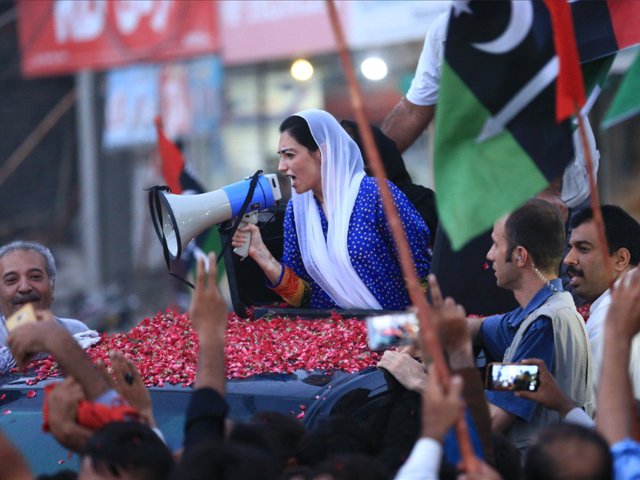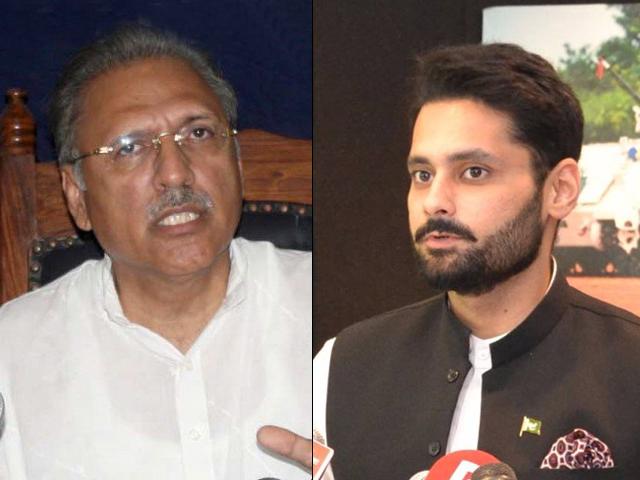
Last year, an 80-year-old Hindu man was beaten up brutally by a policeman for eating rice 40 minutes before iftar time.
With Ehtram-e-Ramazan, we might as well change our flag and make it all green
What are working non-Muslims and non-practicing Muslims supposed to do? Have their lunch in the bathroom?
Pakistan never ceases to shock me. Be it its controversial Prevention of Electronic Crimes Bill (PECB) 2015 which could get us in prison for tweeting against the powers that be, or the formidable strategy of fighting terrorism by banning pillion riding, the government has come up with creative ways to use the law against the public.
Staying true to its tradition, the government has recently announced another bill which states that smoking or eating in public during the month of Ramazan will lead to three-month imprisonment for the “offender” along with a fine of Rs500. This has been proposed as the Ehtram-e-Ramazan (Amendment) Bill, 2017.
There have been mixed reactions to this amendment. Some people are appreciating this feat, whereas others are flabbergasted by it. And then there are those who are justifying this law as the “rule of the land” and stating that since other countries have such ridiculous rules as well, so why can’t we?
This line of argument is flawed on various levels. Firstly, just because everyone is doing something wrong, doesn’t mean we have to jump the bandwagon as well. There is already a very prominent sense of discrimination which minority religions face in this country, and such a law would only increase their sense of alienation. If that is the aim, then why not remove the white part of the flag and make it all green, just like our revered Saudi friends?
Secondly, if we focus on the law itself, we can see some major fallacies. To begin with, how do we even define public spaces? Is it restaurants and cafes outside? What about office spaces then? Aren’t they public spaces as well? If yes, then what are working non-Muslims and non-practicing Muslims supposed to do then? Have their lunches in the bathroom or the store room? The logic used behind phrasing this law is dumbfounding.
Another problem with this law is the indirect pressure it puts on people to fast, even if they don’t want to fast or if they can’t fast. What if somebody is unable to fast due to health-related issues? What about senior citizens? Should they make it a point to stay indoors during lunch hours to escape prosecution? What about menstrual women, who cannot fast during their time of the month? Should they hide away too, in order to eat a proper meal? Practically speaking, this bill does not make sense.
Lastly, there have been multiple forecasts about heat strokes being a major threat for Pakistanis this summer. Should an individual find a safe private space to have a drink or a meal, while they are being affected by the stroke or are unable to bear the heat? Bakhtawar Bhutto, sister of Pakistan Peoples Party (PPP) Chairperson Bilawal Bhutto, has been quick in mentioning this concern and refuting the tenant of this bill completely.
Furthermore, being the Islamic Republic of Pakistan, what about the glaring contradiction of our religion and the Holy Quran which clearly states that there is no compulsion in religion (2:256).
Bills such as this not only give Pakistan a bad name internationally but also make its people lose faith in their government. The damage made by this announcement should be rectified and the amendment should be redacted immediately. Besides this, the committee should also give a statement that if someone is, God forbid, found eating in public spaces, a lynching mob need not be organised to teach the “offender” a lesson. Case in point, last year, an 80-year-old Hindu man was beaten up brutally because he was found eating rice 40 minutes before iftar time. To make matters worse, he was assaulted by a police officer.
The reputed and esteemed Senate Standing Committee on Religious Affairs needs to answer these questions before implementing this bill into the law. Pakistan has an obligation to protect its minority groups and give them the freedom to practice whichever religion they wish to practice.
Let’s preach more about acceptance and love instead of intolerance and hatred.




COMMENTS (28)
Comments are moderated and generally will be posted if they are on-topic and not abusive.
For more information, please see our Comments FAQ